Milky Plant review: is this pricey plant milk maker a dairy-free delight?
The Milky Plant is an all-in-one blender and strainer with one job – to make excellent plant milk – but how does it compete with cheaper alternatives?

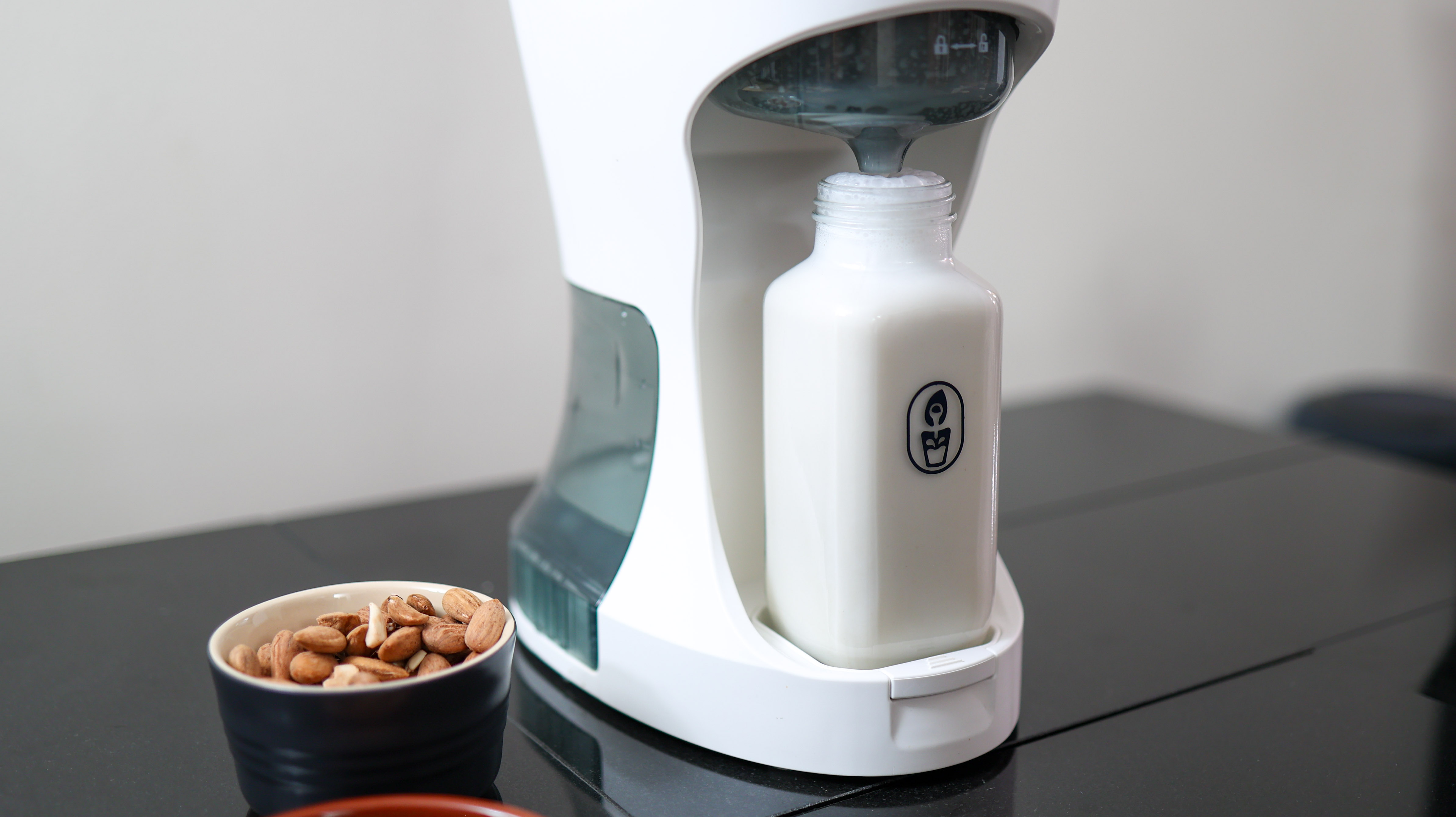
The Milky Plant does an excellent job of streamlining the process of making plant-based milks at home, and for people who have kitchen counter space (and a fair bit of cash) to spare, it could be a great option. Feeling like a first-gen device, Milky Plant isn’t quite the one-size-fits-all solution I hoped it would be, though. Specifically, if you want to up the creaminess of your milk or make a big batch in one go, you're out of luck. Nevertheless, its simplicity and ease of use will be enough to sway many, and it will continue to be used daily in my home.
-
+
Easy to use
-
+
Creates fresh and tasty plant milk
-
+
Streamlines an otherwise messy process
-
-
Inflexible recipes
-
-
Relatively small yield (500ml)
-
-
Large appliance
-
-
Batch-making becomes time-consuming
Why you can trust T3

If you’ve been thinking about going down the homemade milk route, then you too may be wondering: is it really going to taste the same as my regular plant milk, will it be better for the environment, and could it save me money?
Milky Plant has been clever with its social videos, highlighting just how difficult traditional Tetra Pak cartons are to recycle. So, for anyone already dipping their toe in the eco-warrior ocean, the brand’s informative, guilt-tripping video bites might just work on you, as they did on me.
Okay – so what is Milky Plant? It’s a kitchen appliance that makes plant-based milk from raw ingredients. It’s designed to give you complete control over what goes into your plant-based milk. This means it cuts out the usual additives and preservatives in store-bought milk, reduces the environmental impact by cutting out the packaging and transport, and could potentially save you money, with 500ml of oat milk costing as much as about ¼ cup of oats plus some water and salt.
Milky Plant aims to streamline the process of making plant-based milk in a way that's more convenient than the traditional blender/nut milk bag method. But given it's the priciest option of all plant-milk makers I’ve seen, is it worth it and is it better than using the best blender? Let's find out...
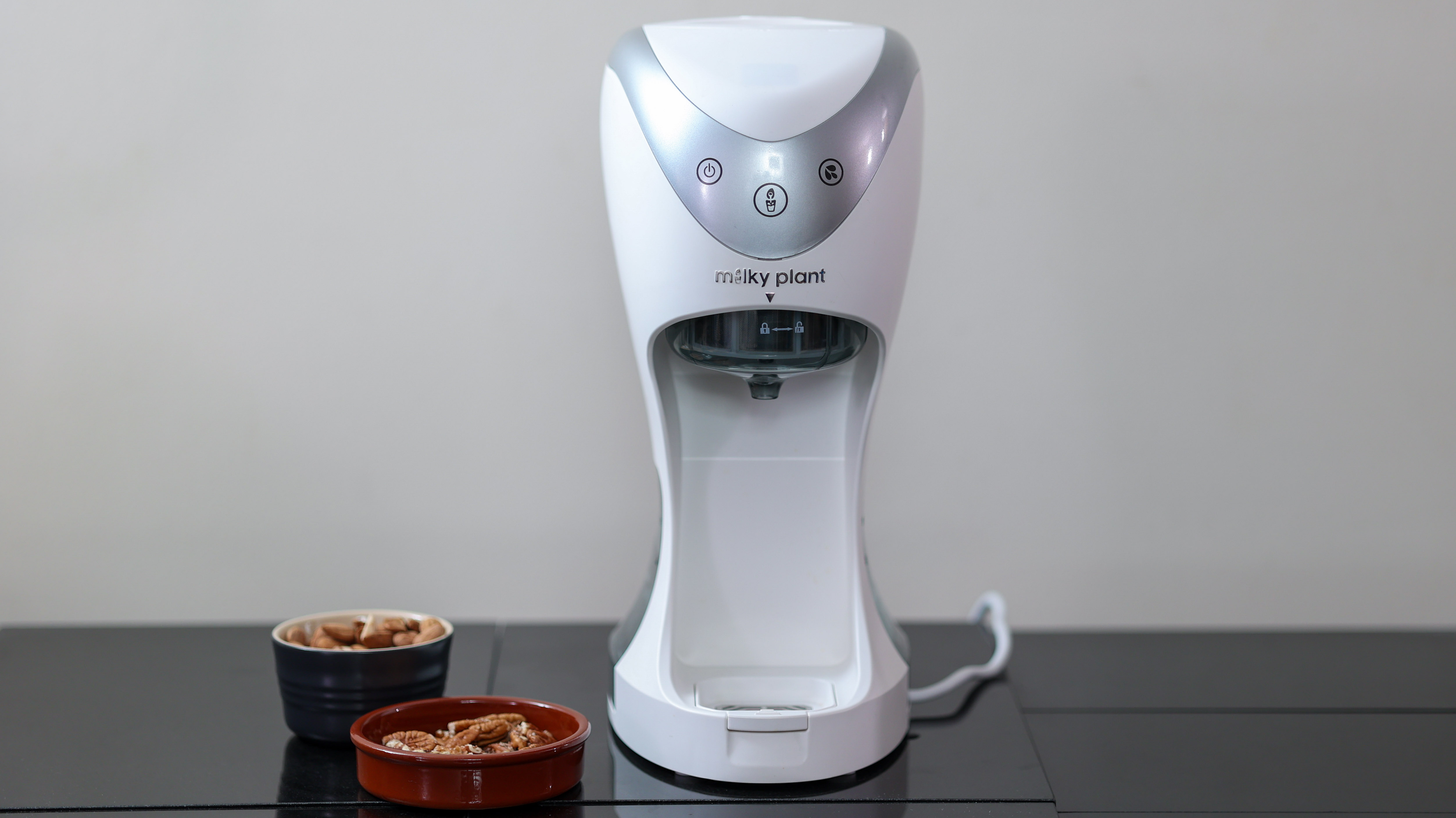
Milky Plant review: price and availability
The Milky Plant retails for £340; however, it's often available at a discount. Even so, it’s still more expensive than most other options in the US or UK, though they tend to be a bit more manual.
As for the cost of the store-bought milk versus Milky Plant milk, the price guide provided on the company’s website states that a litre of oat milk costs £0.43 ($0.52), almond milk costs £0.60 ($0.73), and cashew milk costs £0.80 ($0.98). You’ll be able to work out how this compares to store-bought milk in your area, but where I live, Milky Plant milk is much cheaper, and after around 350 batches – less than a year of use for my household – the machine will have paid for itself.

An image from Milky Plant's website illustrating the rough price of plant milk made using Milky Plant versus store-bought alternatives.
Milky Plant review: unboxing
As you might expect for a brand marketed towards eco-conscious buyers, Milky Plant’s packaging is almost entirely plastic-free. The fairly sizeable Milky Plant is snugly fitted into a cardboard box with cardboard inserts. The user manual, a set of stickers and a couple of pieces of seed paper are packaged in a card sleeve instead of the usual plastic bag, which is a nice touch. Also included is a single glass bottle with a metal cap and a handy metal measuring scoop for your ingredients.
Get all the latest news, reviews, deals and buying guides on gorgeous tech, home and active products from the T3 experts
The Milky Plant is a medium-sized appliance, measuring 38cm tall, 25cm deep and 15cm wide and weighing 4.3kg. Aesthetically, the Milky Plant is a sleek, modern-looking piece of kit with a fluid and uncomplicated design, and there's just one colour option available: white with silver-grey accents. These accents are plastic, so while it looks good, I wouldn’t say it looks premium – a far cry from a fancy coffee machine like the De’Longhi La Specialista Arte, which it lived next to in my kitchen.
Perhaps the more nutritionally conscious among you might wonder about the minerals and vitamins most store-bought, plant-based milks are fortified with. Milky Plant has you covered, offering Fortify Me – a plant-based mixing powder additive available for purchase from their website, currently £25 per 200g bag (20 servings) or £21.25 (15% off) if you subscribe and save.
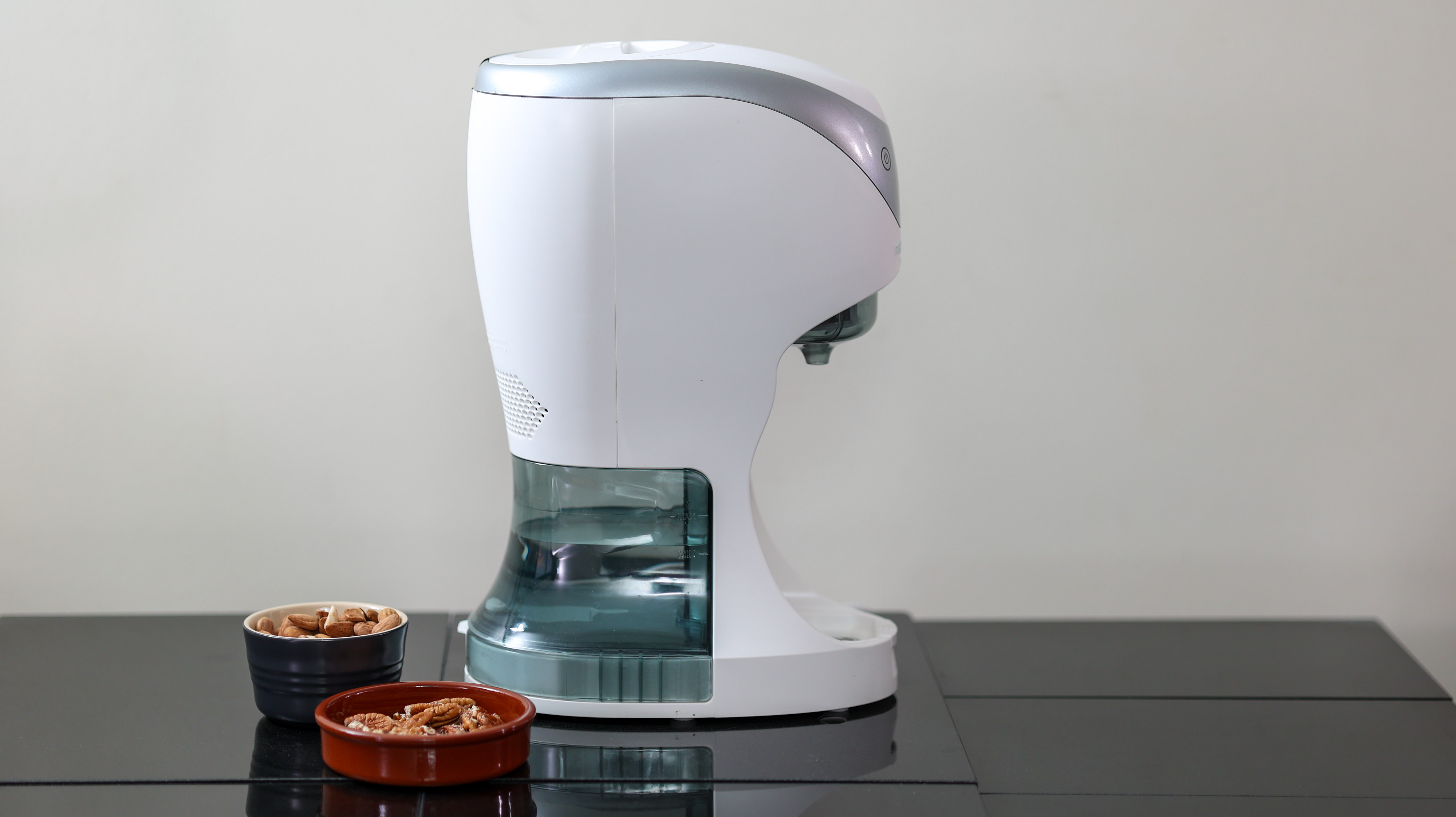
Milky Plant review: set up
The Milky Plant is a breeze to set up. As clearly outlined within the manual, it requires minimal assembly: tee up the water container, pop in the drip tray and filtering sieve/cup, and you’re ready to go. Once your ingredients are placed and locked into the blending compartment (it won’t turn on unless the lid is properly secured), it’s an approximately 3-minute wait until you have 500ml of fresh, plant-based milk.
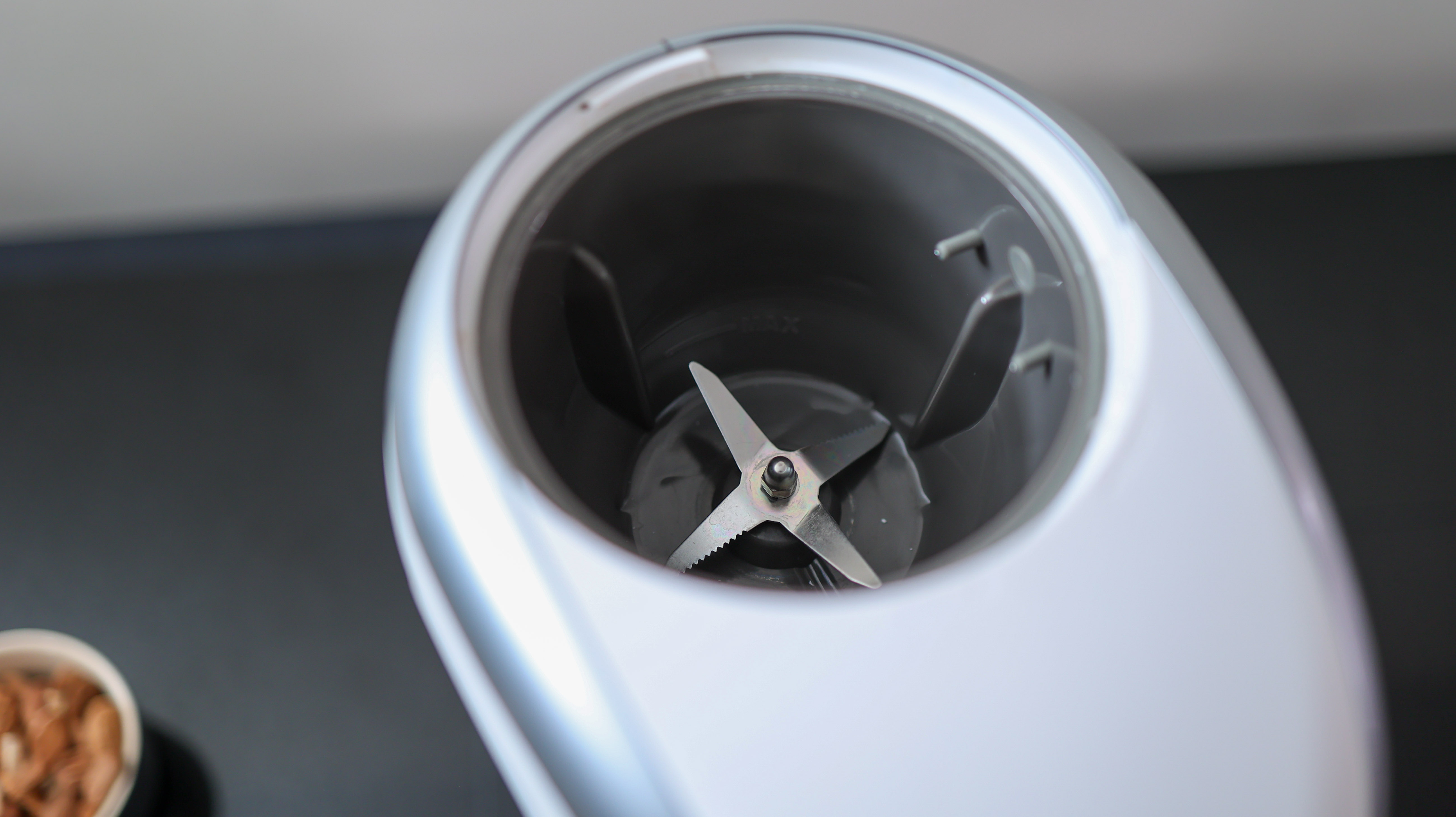
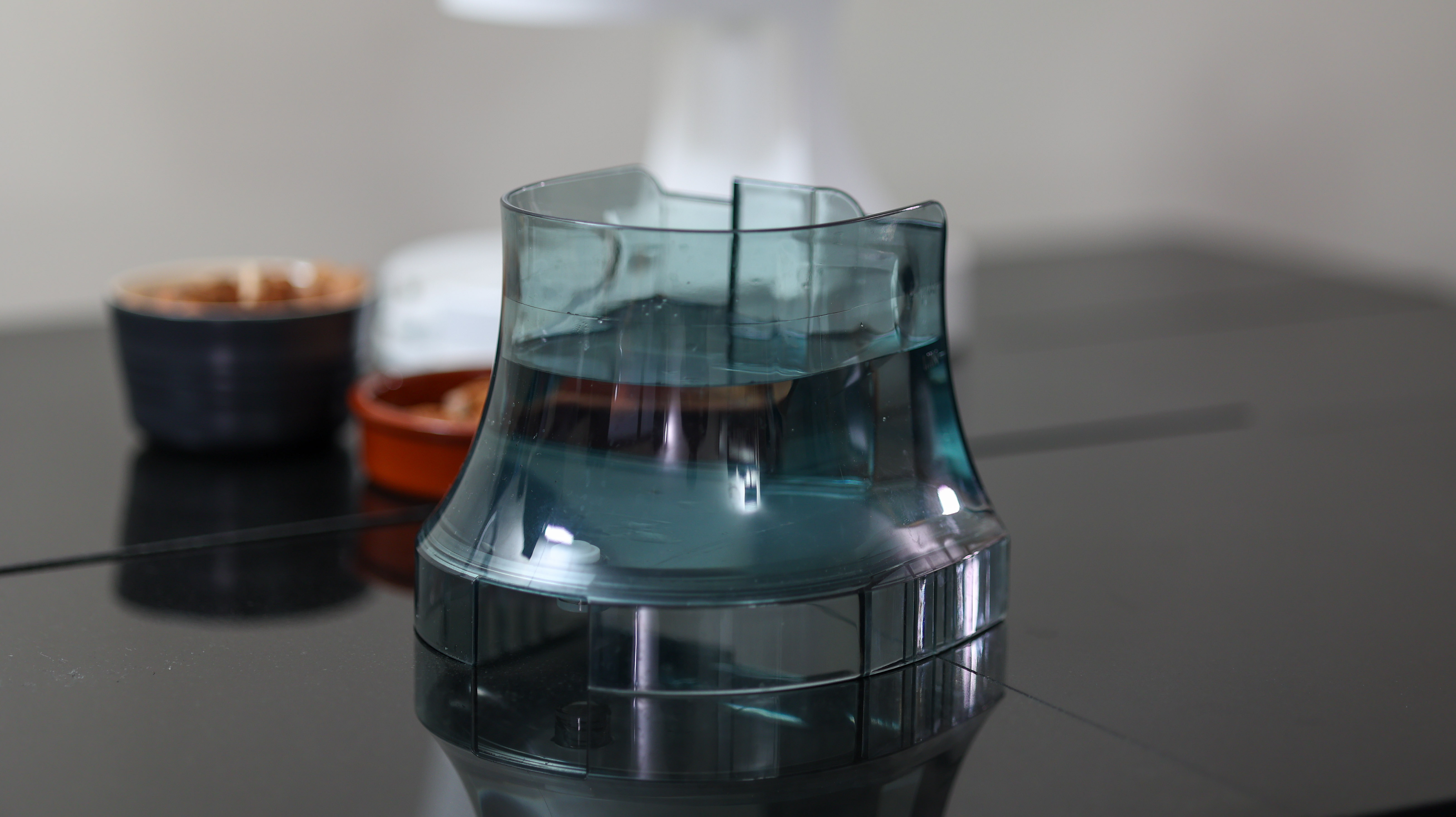
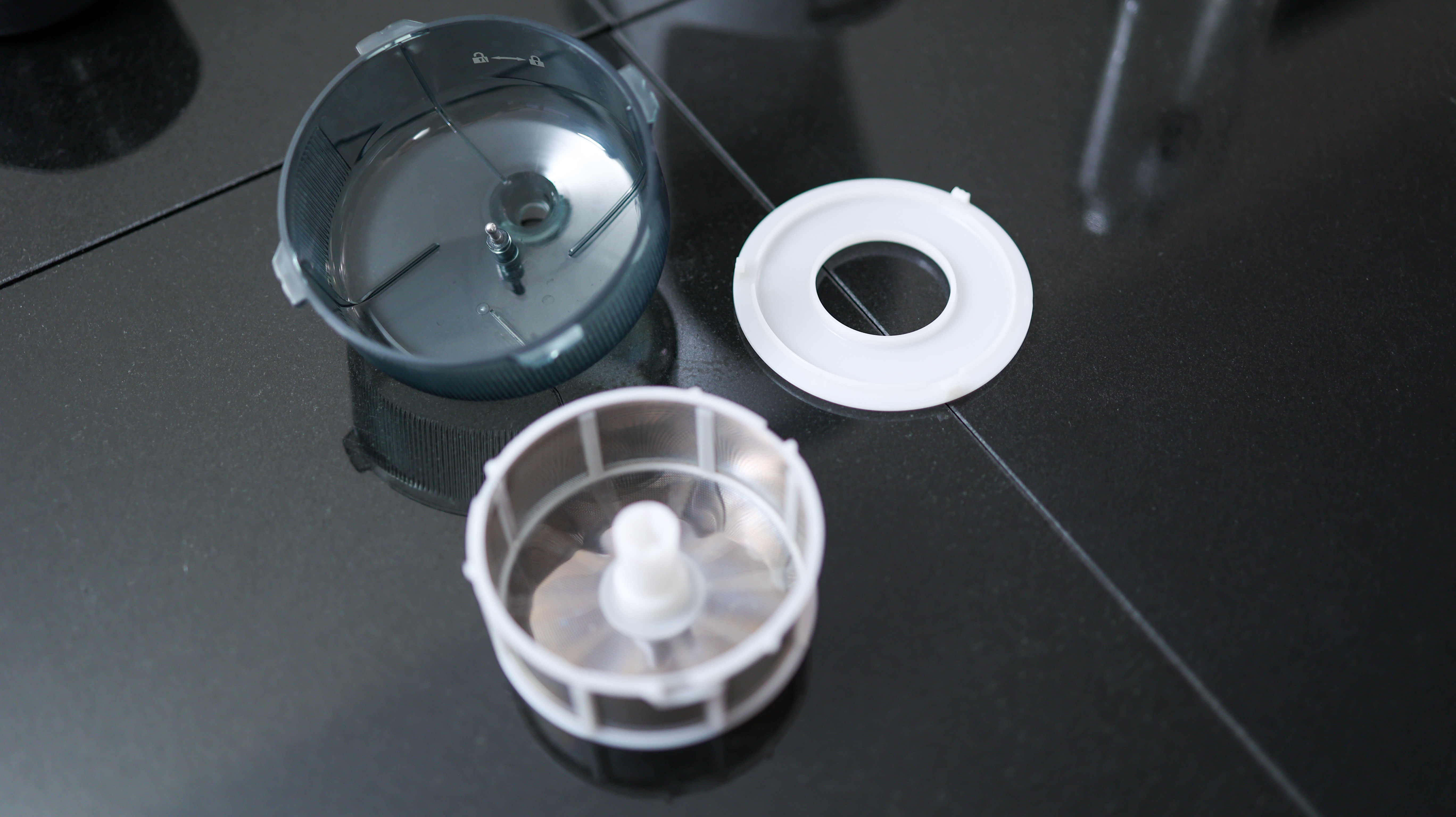
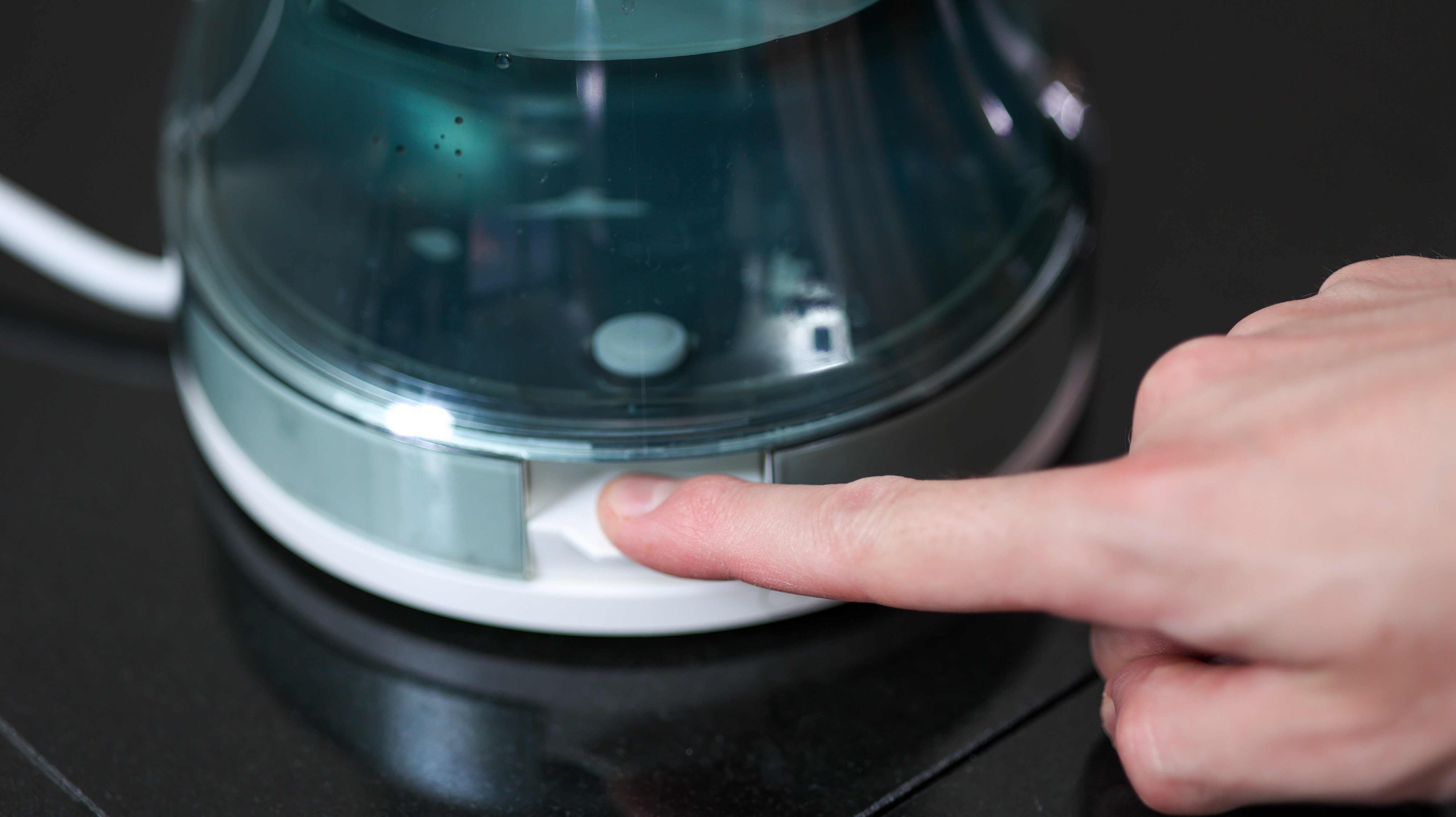
Milky Plant review: performance
I’ve used the Milky Plant for a few months, and both my partner and I are converts. I found that the Milky Plant creates tastier, fresher milk, though it isn’t quite as thick and unctuous as store-bought alternatives with added emulsifiers.
As soon as the milk is ready, it can taste a bit watery depending on the milk type. Cashew milk tasted incredible out of the gate, while almond and oat milk needed to sit in the fridge for an hour before it got a bit creamier. I didn't try to froth any for coffee, but if you like plant milk in your cup of Joe, expect some splitting for certain types of milk.
Making plant milk with Milky plant isn’t hard, but refining your recipe takes a little experimenting. Once you’ve got a process that works for you, creating your daily serving of milk isn’t much more complicated than making your morning coffee.
The price may put some off, but the Milky Plant is arguably an investment piece. Depending on what ingredients you use, creating your own plant-based milk generally works out at a fraction of the cost versus buying it ready-made from stores, as I’ve covered. If this incentive alone isn’t enough, perhaps the environmental impact will sway you. Most plant-based milk comes in Tetra Pak-style cartons, which are not widely recyclable. Milky Plant also offers an end-of-life recycling programme for its machines, which is a definite bonus for the ethically-minded consumer.
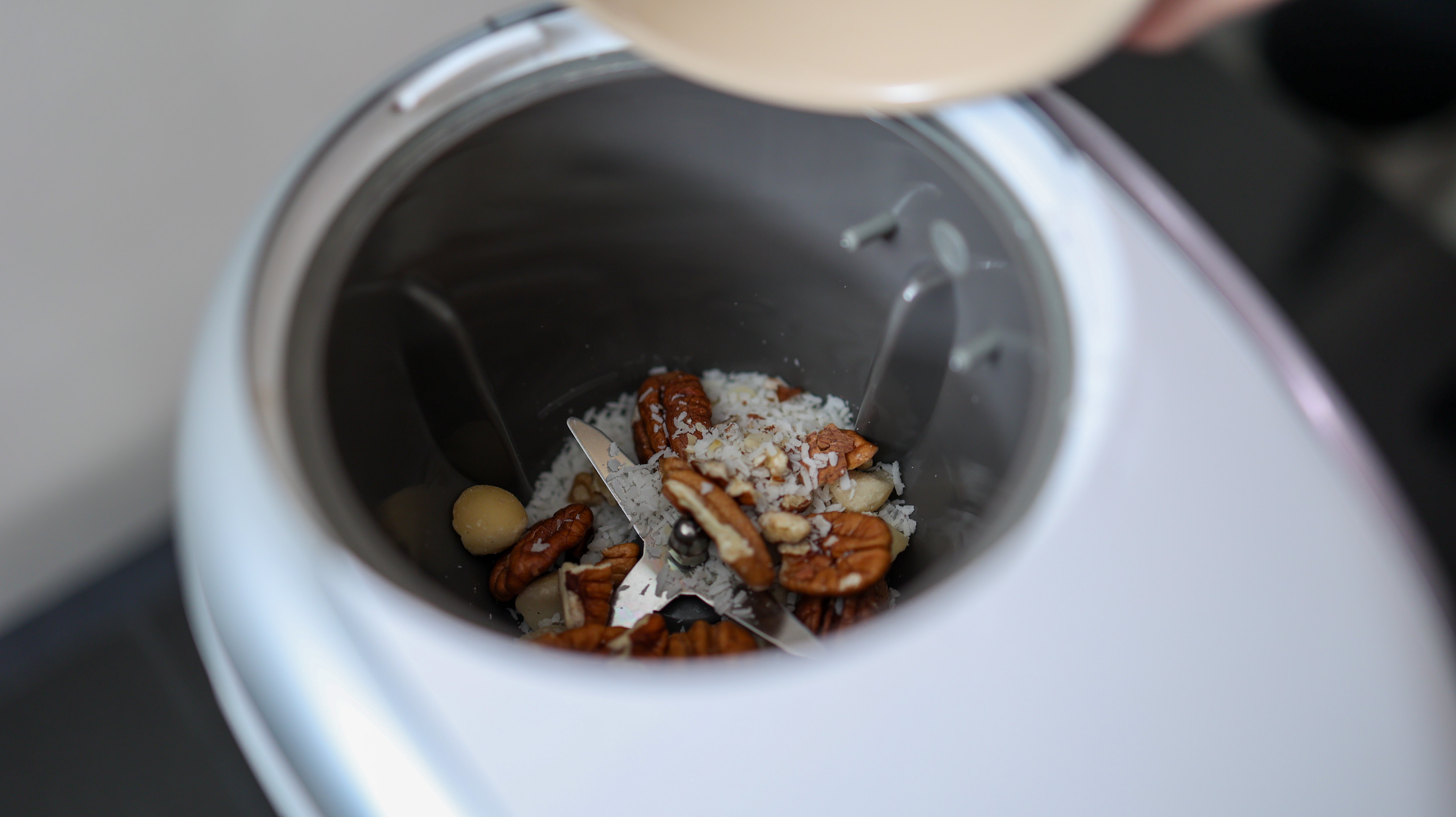
Milky Plant review: cleaning
Because it has more parts than an old-school blender or NutriBullet, there is a little more clean-up required with the Milky Plant than other kitchen appliances used for plant milk – if you’re like me and clean it after every use.
Milky Plant suggests just washing it once a week, and running the soap-free, self-clean cycle after every use instead, but my personal OCD isn’t okay with that. In turn, I might spend longer than I need to on the post-milk clean-up, and if you’re like me, you will too. If you follow the instructions to the letter, though, then you’ll hardly spend any time washing out your machine.
What Milky Plant does very well is streamline the cleaning process and make it far less messy than alternatives.
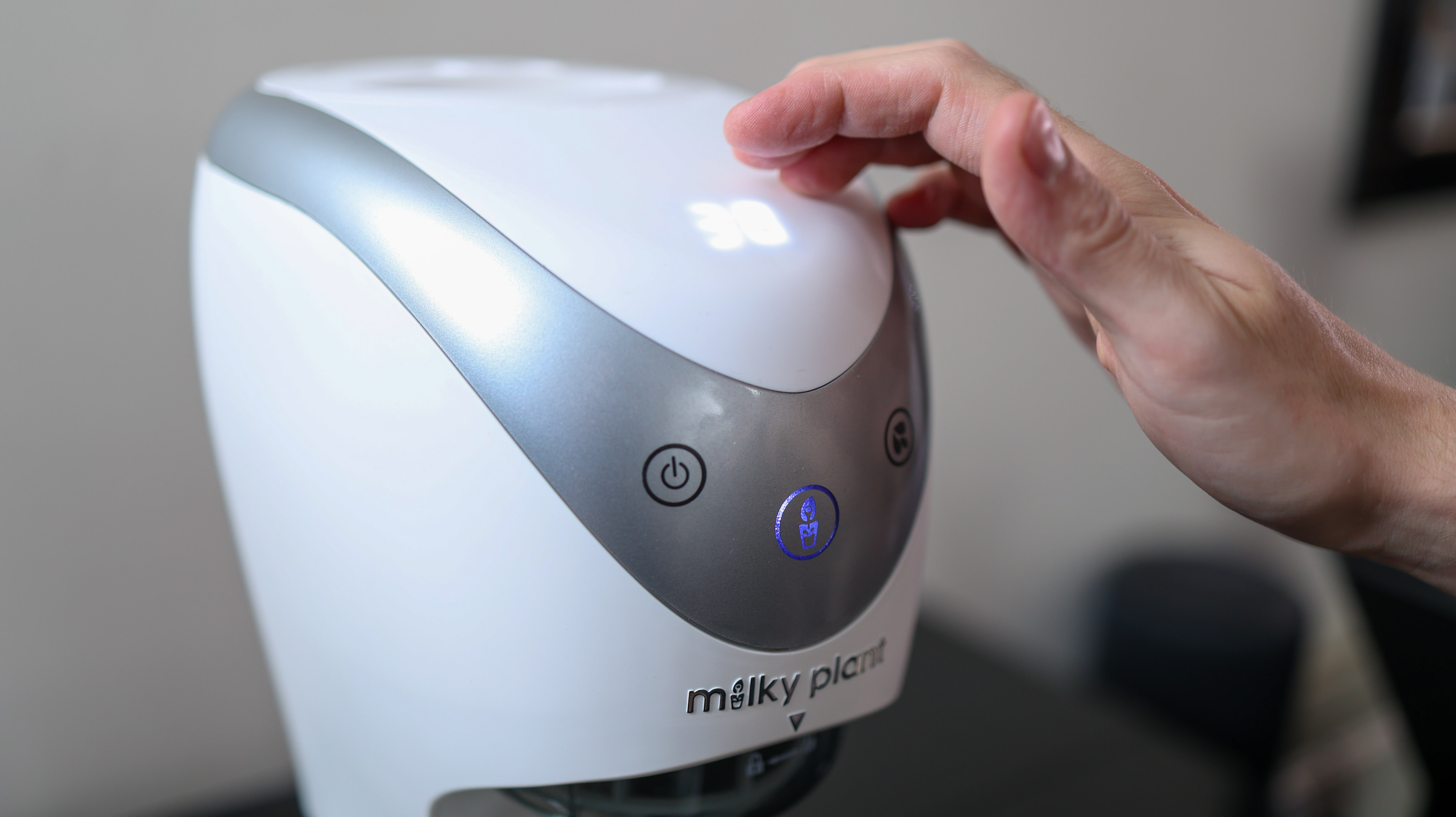
Milky Plant review: verdict
The Milky Plant does an excellent job of streamlining the process of making plant-based milks at home, and for people who have some kitchen counter space and around £300 to spare, it could be a great option.
Feeling like a first-gen device, though, the Milky Plant isn’t quite the one-size-fits-all solution I hoped it would be. If you’re looking to batch blend a lot of milk in one go, are short on kitchen space and already have a decent blender, or want the flexibility to make creamier, higher-concentration plant milk, going old school and picking up an inexpensive nut milk bag could be a better shout. However, for a certain type of plant milk drinker, I would definitely recommend the Milky Plant for its potential simplicity and ease of use.
In summary, while the Milky Plant has succeeded in converting my household to one that makes its own plant milk, I also looking forward to the Milky Plant 2.0, which will hopefully be a machine that lets you dial up and down milk richness, and make more than 500ml at a time.

Milky Plant vs traditional blenders/nut milk bags
It might surprise you to know just how easy it is to whip up a batch of plant milk without a Milky Plant. All you need is a blender and an inexpensive cloth or nut milk bag, as well as the ingredients.
If you have made plant-based milk in a blender, you’ll know that whilst it’s a simple process – blend your ingredients with water, then strain the liquid – you need to filter it through a nut milk bag, using your hands, and then empty out the pulp; it’s a relatively messy job.
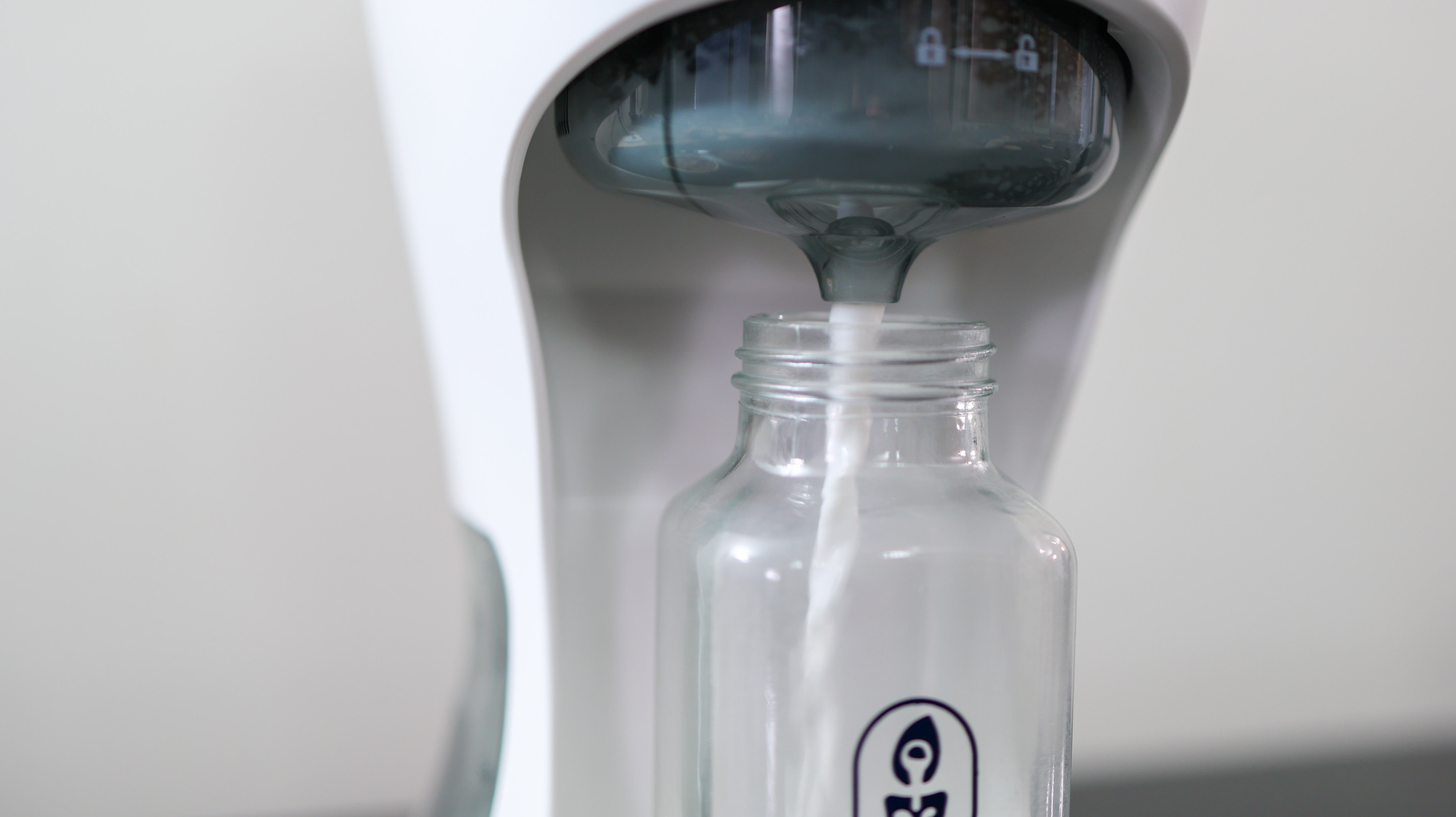
There are, however, pros to the traditional blender and nut milk bag process versus the Milky Plant. For example, the Milky Plant is very particular about the volume of ingredients you put into it. Go over the max line at your peril – this almost always ended up with the machine beeping furiously – requiring everything be emptied out, wiped down, and filled back up. While Milky Plant specifies this will happen and comes with a handy metal scoop to help you measure the ingredients you are putting in, you might run into issues if you plan on eye-balling your measurements.
There is one caveat: flax and chia seeds. Both have high amounts of mucilage, so overload the machine if you go over a tablespoon because they block the filter. So, despite hoping to get flaxseed milk from my Milky Plant, I’ve come to terms with the fact that won’t be happening.
Milky Plant’s inflexibility regarding the volume of ingredients means you are far more limited in both the amount of milk you make from each cycle and the depth of flavour of the milk you can create with the Milky Plant versus a nut milk bag. Milky Plant won’t let you make extra-concentrated nut milk that borders on cream in its richness, something that is easy to do with a blender; dial up the amount of coconut, nuts or oats in relation to water before straining it.
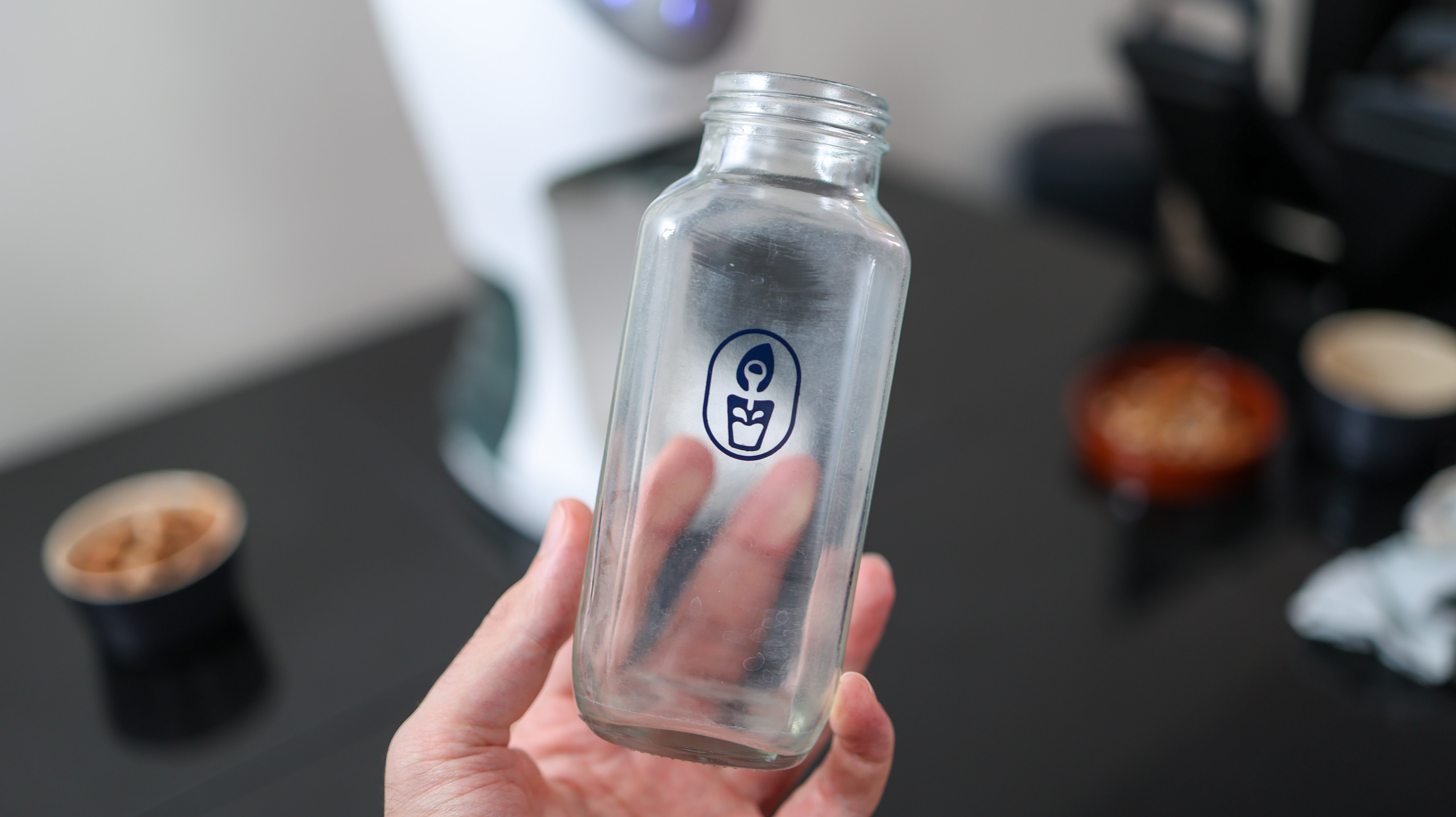
Then there’s the question of volume. A store-bought carton is usually one litre, and a run of the Milky Plant only yields 500ml of plant milk. For some additional context, a single batch of plant milk in a large NutriBullet cup made up to 750ml, for context.
For a household like mine, that puts away around five litres of plant-based milk a week, the Milky Plant requires 10 weekly cycles. Batch-making milk fast becomes noticeably more laborious using the Milky Plant than a large blender. After all, after each run, you then need to refill the water tank, empty out the pulp, and rinse out the filtering sieve to start the process again.
However, it's also probably worth noting that if you are batch-making plant-based milk at home, the shelf life of your milk will only be a few days without adding preservatives, especially if you are using raw, organic produce.
All this means there isn’t an obvious winner in the Milky Plant versus alternatives battle. But if your household gets through as much plant-based milk as ours, and you have one of the best blenders around, you might want to consider at least testing the waters with a nut milk bag before taking the Milky Plant plunge.

Basil has been writing about tech for over 12 years, with bylines in TechRadar, Metro, Wired, and Digital Camera World – to name but a few titles. He expertly covers everything from mobile phones to smart devices, cameras, audio-visual hardware, and kitchen tech. In addition to his extensive journalism experience, Basil is also skilled in video production, content strategy, and vegan baking, and runs Tech[edit], a technology-focused YouTube channel.